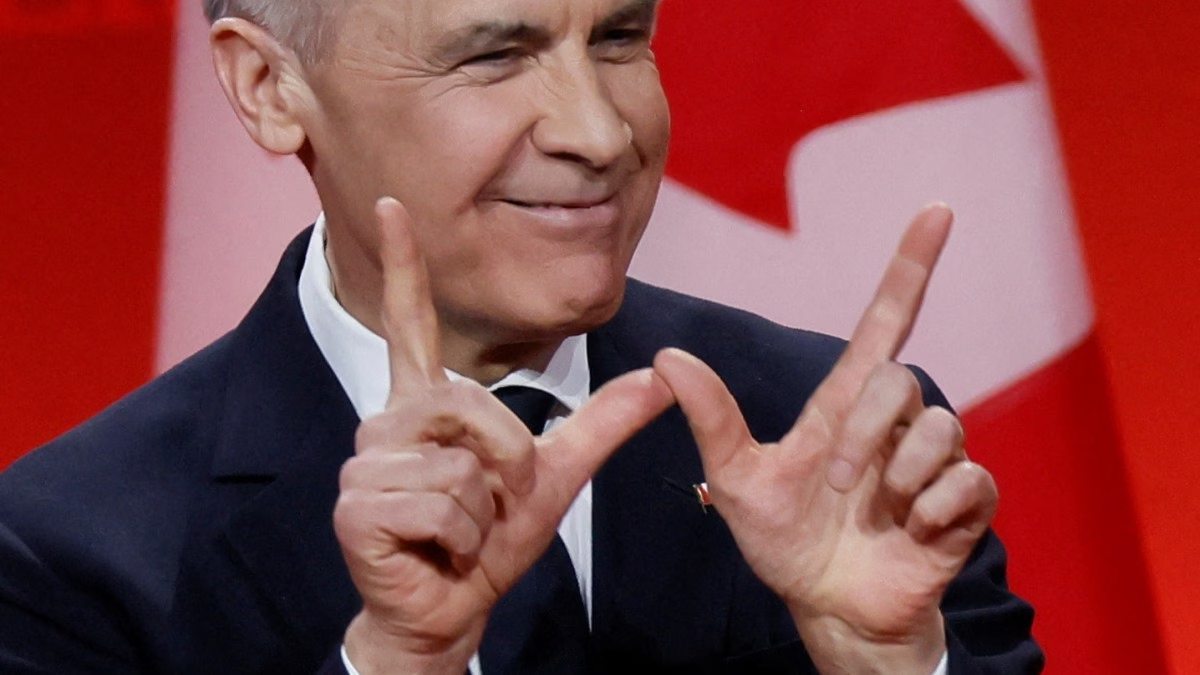Whether to cancel or continue with a contentious deal is the question facing Canada’s new Prime Minister Mark Carney as he prepares to announce a federal election that will largely be defined by who Canadians trust to stand up to a belligerent American president reportedly aiming to make Canada a US state.
Amidst an escalating trade war through tit-for-tat tariffs between Canada and the United States, a new dispute has arisen: The potential cancellation of a $19 billion deal to purchase 62 additional F-35 fighter jets from the United States, arranged by former Prime Minister Justin Trudeau.
Prime Minister Carney is under pressure from usually opposing political factions in Canada to cancel the remainder of the deal, which would follow Portugal’s decision to abandon their purchase of the jets. This is seen as a stance against US President Donald Trump’s imperialism and a declaration of Canada’s autonomy.
Political pundits and former Liberal Foreign Minister Lloyd Axworthy have joined peace and disarmament groups in urging Carney to “stand up to” Trump by scrapping the F-35 deal. The argument is that this would prevent entanglement with the US military, preserving Canada’s independence and avoiding potential vengeful withholding of software upgrades for the jets, which are controlled by US arms manufacturer Lockheed Martin.
Carney has responded to this nationalistic sentiment by announcing that Ottawa will “re-examine” its Lockheed Martin contract and explore European alternatives to the F-35 jets, allowing him time to consider the implications of full cancellation.
The columnist suggests that Carney should play the “long game” in this dispute, using the F-35 procurement as leverage during negotiations to dampen Trump’s retaliatory instincts. The columnist also argues against acquiring obsolete warplanes and for investing the funds in other pressing domestic concerns.
The author advises Carney to avoid giving in to pressure to quickly replace the F-35s with Swedish Saab Gripen jets and to maintain a cool demeanor in negotiations. The columnist also highlights the practical and financial issues with maintaining a mixed fleet of aircraft.
The columnist concludes by advising Carney to carefully consider his approach to the situation and not to rush into decisions that could have negative consequences. The article is clear that the views expressed are those of the author and not necessarily representative of Al Jazeera’s stance.
Amidst an escalating trade war through tit-for-tat tariffs between Canada and the United States, a new dispute has arisen: The potential cancellation of a $19 billion deal to purchase 62 additional F-35 fighter jets from the United States, arranged by former Prime Minister Justin Trudeau.
Prime Minister Carney is under pressure from usually opposing political factions in Canada to cancel the remainder of the deal, which would follow Portugal’s decision to abandon their purchase of the jets. This is seen as a stance against US President Donald Trump’s imperialism and a declaration of Canada’s autonomy.
Political pundits and former Liberal Foreign Minister Lloyd Axworthy have joined peace and disarmament groups in urging Carney to “stand up to” Trump by scrapping the F-35 deal. The argument is that this would prevent entanglement with the US military, preserving Canada’s independence and avoiding potential vengeful withholding of software upgrades for the jets, which are controlled by US arms manufacturer Lockheed Martin.
Carney has responded to this nationalistic sentiment by announcing that Ottawa will “re-examine” its Lockheed Martin contract and explore European alternatives to the F-35 jets, allowing him time to consider the implications of full cancellation.
The columnist suggests that Carney should play the “long game” in this dispute, using the F-35 procurement as leverage during negotiations to dampen Trump’s retaliatory instincts. The columnist also argues against acquiring obsolete warplanes and for investing the funds in other pressing domestic concerns.
The author advises Carney to avoid giving in to pressure to quickly replace the F-35s with Swedish Saab Gripen jets and to maintain a cool demeanor in negotiations. The columnist also highlights the practical and financial issues with maintaining a mixed fleet of aircraft.
The columnist concludes by advising Carney to carefully consider his approach to the situation and not to rush into decisions that could have negative consequences. The article is clear that the views expressed are those of the author and not necessarily representative of Al Jazeera’s stance.







